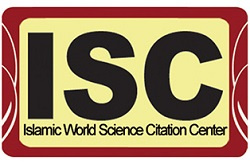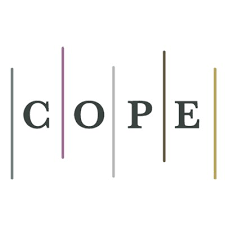Uncertainty analysis of business components in Iran with fuzzy systems: By comparing hypermarkets and Net markets
DOI:
https://doi.org/10.52547/ijimes.1.1.45DOR:
https://dorl.net/dor/20.1001.1.27832678.2021.1.1.3.3Keywords:
Business, Fuzzy Systems, Uncertainty, Hypermarket, Net MarketAbstract
Purpose: Today's businesses, especially in Iran, face many factors and challenges, one of which is uncertainty in inputs and laws and regulations. Especially in the current situation and with the development of e-commerce on the one hand and on the other hand despite critical conditions such as COVID-19, the purpose of this article is a comparison between businesses with the study of hypermarkets and net markets.
Methodology: This research is a descriptive-analytical type that after explaining the goals and components of organizational business using library resources and Internet search, interviews and questionnaires, from a multi-criteria decision approach and fuzzy logic for effective analysis The implications of organizational business are exploited. Two areas of physical retail businesses such as hypermarkets and virtual ones such as net markets have been compared and analyzed. The necessary decisions for the activities of these businesses are inferred using the principle-based principles of fuzzy systems.
Findings: The result of the research has been that due to the capabilities of the development of net markets such as the effective use of information technology and experts, their comprehensive development and growth in the future is more realistic that The ability to extend this to other areas of virtual business. Especially in spite of critical conditions such as the spread of pandemics, the popularity of using net markets has increased.
Originality/Value: The virtual and internet business platform has not yet been significantly developed in Iran. The most important approach in this study is to examine the components of business in Iran and a comparative study to change attitudes toward e-business.
Downloads
References
Gitman, L., & McDaniel, C. (2018). [eTextbook] Introduction to Business. OpenStax.
David, N. (2012). Environmental futures research: experiences, approaches, and opportunities. Gen. Tech. Rep. NRS-P-107. Newtown Square, PA: US Department of Agriculture, Forest Service, Northern Research Station. 79 p., 107, 1-79.
Hamilton, L., & Webster, P. (2018). The international business environment. Oxford University Press.
Samadi parviznejad, P., & Naser Akhavan, A. (2021). Impact of the Tourism Industry Scenarios in Urban Economy: (Case Study Tabriz): Impact of the Tourism Industry Scenarios. International Journal of Innovation in Management, Economics and Social Sciences, 1(1), 1–15
Stern, Nicholas, (2002), A Strategy for Development. Washington, D.C., World Bank.
Zhang, S., Collins, A. R., Etienne, X. L., & Ding, R. (2021). The Environmental Effects of International Trade in China: Measuring the Mediating Effects of Technology Spillovers of Import Trade on Industrial Air Pollution. Sustainability, 13(12), 6895, doi: https://doi.org/10.3390/su13126895
Syrett, M., Devine, M. (2012). Managing Uncertainty: The Economist in association with Profile books LTD, Great Britain.
Ghahremani-Nahr, J., Nozari, H., & Bathaee, M. (2021). Robust Box Approach for Blood Supply Chain Network Design under Uncertainty: Hybrid Moth-Flame Optimization and Genetic Algorithm. International Journal of Innovation in Engineering, 1(2), 40-62.
Zimmermann, H. (2001). Fuzzy Set Theory and Its Applications. Springer Pub, Netherlands, doi: https://doi.org/10.1007/978-94-010-0646-0_11.
Goodwin, N., Harris, J. M., Nelson, J. A., Rajkarnikar, P. J., Roach, B., & Torras, M. (2018). Macroeconomics in context. Routledge, doi: https://doi.org/10.4324/9780203713075.
Syrett, M., & Devine, M. (2012). Managing Uncertainty: Strategies for surviving and thriving in turbulent times. John Wiley & Sons.
Wadende, P., Francis, O., Musuva, R., Mogo, E., Turner-Moss, E., Were, V., ... & Foley, L. (2021). Foodscapes, Finance and Faith: A Qualitative Investigation of Multi-Sectoral Stakeholder Perspectives on a New Mall and Supermarket in Kenya. doi: https://doi.org/10.21203/rs.3.rs-547640/v1
Lu, S., Wang, W., Cheng, Y., Yang, C., Jiao, Y., Xu, M., ... & Xu, J. (2021). Food-trade-associated COVID-19 outbreak from a contaminated wholesale food supermarket in Beijing. Journal of Biosafety and Biosecurity, 3(1), 58-65, doi: https://doi.org/10.1016/j.jobb.2021.04.002.
Jung, J., Ko, E., & Woodside, A. G. (2021). How shoppers' configurations of demographics, sustainability assessments, and place-attractiveness assessments impact who shops in culturally traditional mega-markets. Journal of Business Research, 122, 640-656, doi: https://doi.org/10.1016/j.jbusres.2019.09.005.
Brillinger, A. S., Els, C., Schäfer, B., & Bender, B. (2020). Business model risk and uncertainty factors: Toward building and maintaining profitable and sustainable business models. Business Horizons, 63(1), 121-130, doi: https://doi.org/10.1016/j.bushor.2019.09.009.
Sharma, P., Leung, T. Y., Kingshott, R. P., Davcik, N. S., & Cardinali, S. (2020). Managing uncertainty during a global pandemic: An international business perspective. Journal of business research, 116, 188-192, doi: https://doi.org/10.1016/j.jbusres.2020.05.026.
ASKAR, W. (2020). Factors Influencing Consumer's Intention Towards Online Grocery Shopping In The United Arab Emirates.
Ciasullo, M. V., Fenza, G., Loia, V., Orciuoli, F., Troisi, O., & Herrera-Viedma, E. (2018). Business process outsourcing enhanced by fuzzy linguistic consensus model. Applied Soft Computing, 64, 436-444, doi: https://doi.org/10.1016/j.asoc.2017.12.020.
Kamran-Disfani, O., Mantrala, M. K., Izquierdo-Yusta, A., & Martínez-Ruiz, M. P. (2017). The impact of retail store format on the satisfaction-loyalty link: An empirical investigation. Journal of Business Research, 77, 14-22, doi: https://doi.org/10.1016/j.jbusres.2017.04.004.
Norat, R., Kun, H., Domingo, R. (2016), Qualitative comparative analysis: Crisp and fuzzy sets in business and management, Journal of Business Research,Volume 69, Issue 4,1261–1264, doi: https://doi.org/10.1016/j.jbusres.2015.10.089.
Groumpos, P. (2015), Modelling Business and Management Systems Using Fuzzy Cognitive Maps: A Critical Overview, 16th IFAC Conference on Technology, Culture and International Stability TECIS, Sozopol, doi: https://doi.org/10.1016/j.ifacol.2015.12.084.
Im, K., Cho, H. (2013), A systematic approach for developing a new business model using morphological analysis and integrated fuzzy approach, Expert Systems with Applications Volume 40, Issue 11, 4463–4477, doi: https://doi.org/10.1016/j.eswa.2013.01.042.
Liao, S. H., Chen, Y. J., & Lin, Y. T. (2011). Mining customer knowledge to implement online shopping and home delivery for hypermarkets. Expert Systems with Applications, 38(4), 3982-3991, doi: https://doi.org/10.1016/j.eswa.2010.09.059.
Zardari, N. H., Ahmed, K., Shirazi, S. M., & Yusop, Z. B. (2015). Weighting methods and their effects on multi-criteria decision making model outcomes in water resources management. Springer.
Triantaphyllou, E. (2013). Multi-criteria Decision Making Methods: A Comparative Study. Springer Science & Business Media, 10.1007/978-1-4757-3157-6.
Grünig, R., Kühn, R. (2018). The Strategy Planning Process: Analyses, Options, Projects. Translated by Montani,M., Springer, 10.1007/978-3-662-56221-5.
Nguyen, H., Sugeno, M. (2015). Fuzzy Systems: Modeling and Control. Springer Science & Business Media, 10.1007/978-1-4615-5505-6.
Zimmermann, H. (2001). Fuzzy Set Theory and Its Applications. Springer Pub, Netherlands, 10.1007/978-94-015-8702-0.
Carlsson, C., Fedrizzi, M., Fuller, R. (2004). Fuzzy Logic in Management. Springer Science & Business Media, 10.1007/978-1-4419-8977-2.
Lilly, J. (2011). Fuzzy Control and Identification. John Wiley & Sons.
Published
How to Cite
Issue
Section
License
Copyright (c) 2021 Vahid Saeid Nahaei, Mohsen Bahrami

This work is licensed under a Creative Commons Attribution 4.0 International License.












